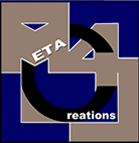 |  | |||
 |  |  | ||
Meta4Creations Strategic Internet Marketing Services
Quote of the Day
FAQ on Search Engine Optimization Services
Can anyone guarantee a number one listing for a search phrase?
No. There are some very talented individuals in this field, but none that can guarantee winning for HIGHLY COMPETITIVE PHRASES such as those in the travel industry. If you meet anyone who claims to have a “special relationship” with the search engines keep one hand on your wallet. If you ever believe them, I have a beautiful bridge in Brooklyn that I would like to sell you. Don’t get taken for a ride. Get references, and examples of past work. As with anything, research before you purchase, and don’t get sucked in by hype.
What is the best way to perform search engine optimization on my site?
The best search engine optimization technique is to provide your users with the information that they are looking for. High quality informational content is the best way to attract and retain visitors. Building your site according to the standards that have been set by the W3C is one of the best ways to ensure good search engine traffic. H1 tags (heading tags), titles, and link text (the words you use when describing links) are three of the most important aspects to earning high SE positions at the current time. These criteria, however, may change and the best way to keep your site high in your rankings is to adhere to general "good coding" standards. Check out our 13 steps for small business succes online for more information.
I thought spam was only in a can and in my e-mail box…how can it be on a website?
Spam has gained a very loosely defined meaning these days. The
most basic question you can ask yourself in regards to spam on your website
is:
Would I do it if the search engines didn’t exist?
If the answer is yes… you are probably not spamming. If the answer
is no, then you had better be careful in your approach.
The second general rule of thumb in regards to website spam is:
Would the technique being used pass human inspection?
Spam is the biggest enemy of the search engines. They hate it more than
you hate receiving naked pictures and penis pill offers in your e-mailbox.
The 3rd and best definition given for spam is: Anything that is not relevant
to the user. Remember, you don’t like it… so don’t do
it. Hopefully, one day, spammers will be publicly flogged, and you really
don’t want that.
I see lots of sites beating me with several tricks… Why shouldn’t I try these?
There are two types of SEO these days. Those who are in it for the short run for ultra-competitive phrases who use spam techniques, and those who would like to obtain high volumes of RELEVANT, SUSTAINED traffic over a long period of time. M4C falls into the latter group. We pride ourselves on using only ethical “organic” search engine optimization techniques. M4C would rather attain long-term results than short-term results that may result in penalization from the search engines. Sites that optimize according to the latest SEO “tricks” and fads usually find themselves at the bottom of the results after someone turns in a report on them or the engines rewrite their criteria to penalize such tricks.
Why do search engines penalize websites?
The purpose of a search engine is to provide relevant information to their users. The engines are constantly battling spammers to keep their results relevant and spam-free. It is similar to a game cops and robbers. The robbers (spammers) devise new techniques, and a bunch of them jump on board and make out like bandits for a while. Sooner, or later, however, the cops (search engines) catch on and the bandits are stuck behind steel bars awaiting parole (reinstatement). Those that abide by the rules, and don’t test the limits until they are established make out the best in the end. Stick with proven techniques that work, and you will not be banned.
More Answers to FAQ's about Search Engine Optimization
M4C Search Engine Optimization Services